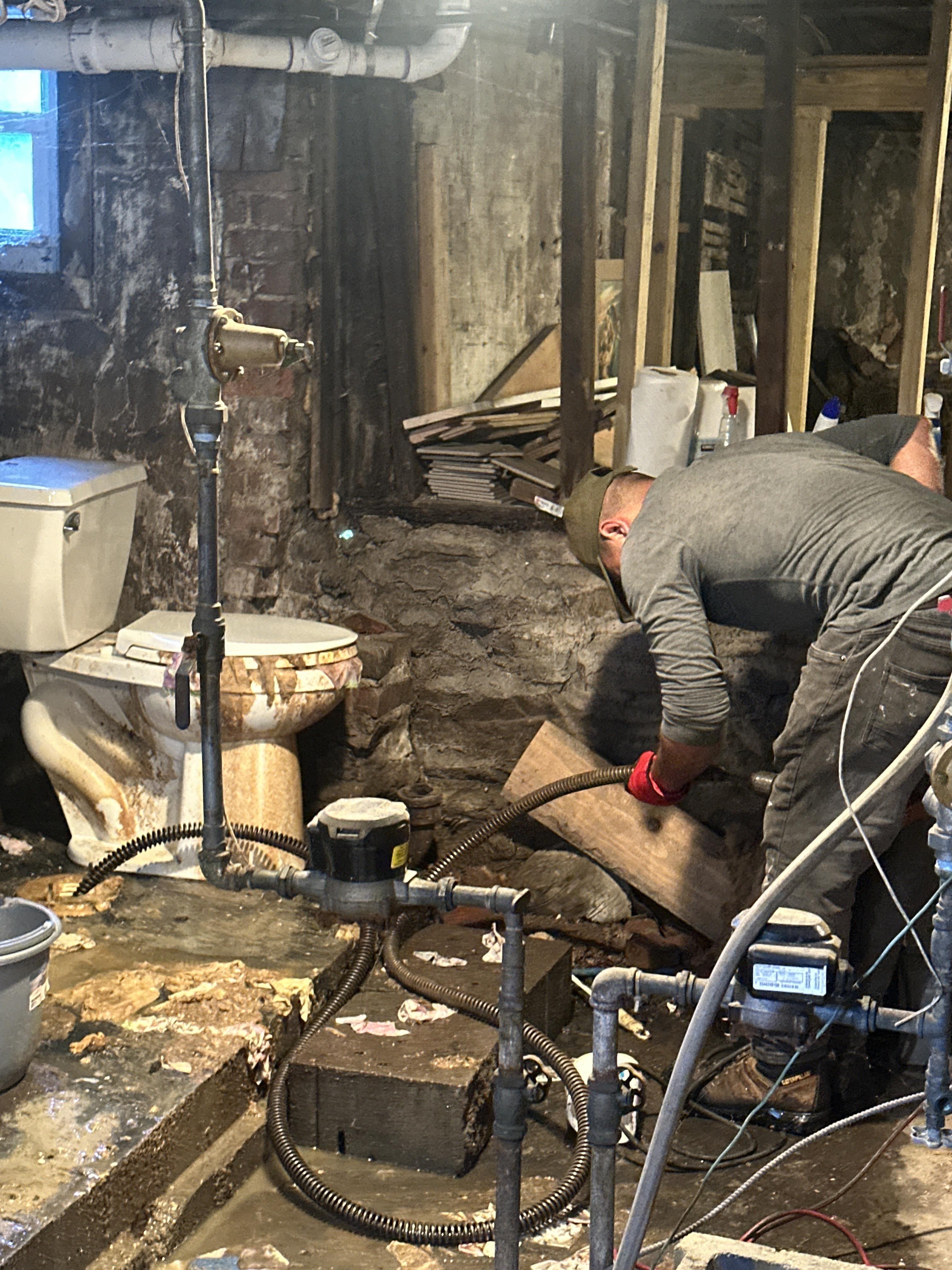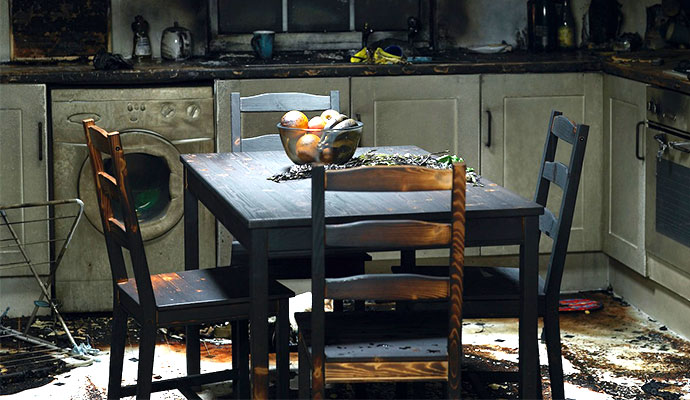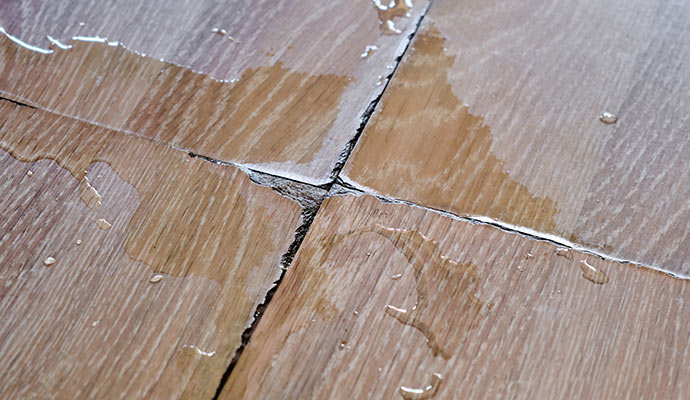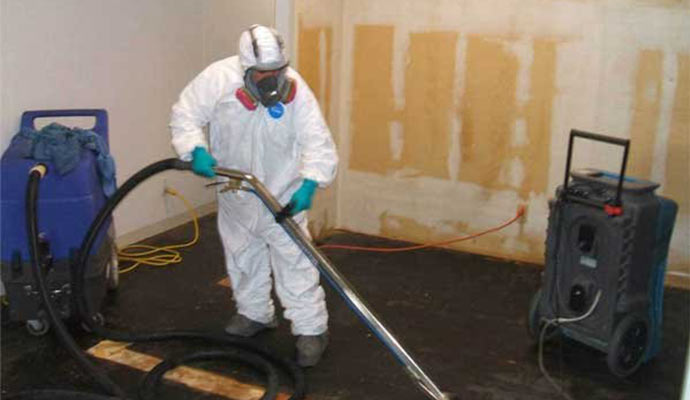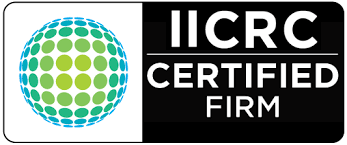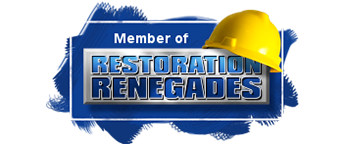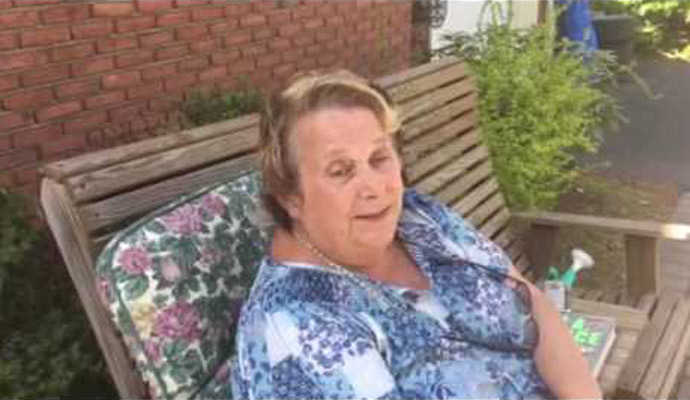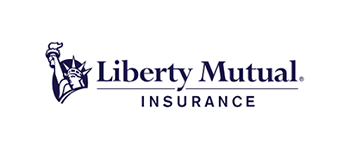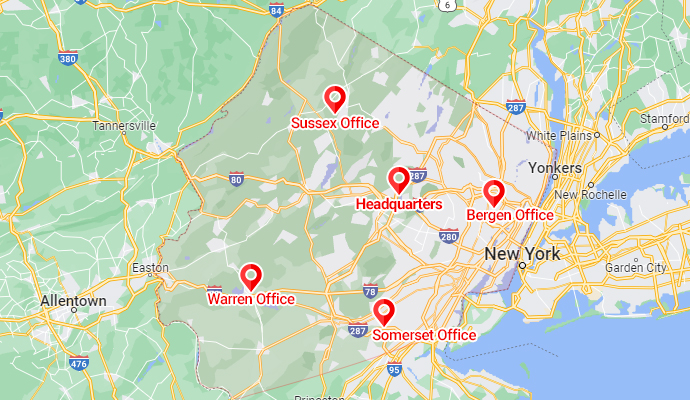Frequently Asked Questions about Water Damage
Water damage should always be taken care of quickly to avoid further damage. If it is not handled right away, water damage can cause significant harm to yourselves and your properties. Here are some frequently asked questions that our customers often ask our experts.
Water damage can happen unexpectedly, often catching homeowners off guard and leading to significant damage if not addressed promptly. Understanding the common causes can help you take preventive measures to protect your property.
-
Heavy Snow and Rain: Prolonged or intense snowfall and rainstorms can overwhelm drainage systems, leading to roof leaks, basement flooding, and moisture intrusion. Melted snow can seep into cracks or create ice dams, further exacerbating water damage.
-
Malfunctioning Appliances: Household appliances such as washing machines, dishwashers, and water heaters are frequent culprits of water damage. Over time, hoses and seals can wear out, resulting in leaks or bursts that cause flooding in areas like laundry rooms or kitchens.
-
Leaking or Burst Pipes: Pipes can develop leaks due to aging, freezing temperatures, or sudden bursts. These leaks can saturate walls, ceilings, and flooring, often going unnoticed until extensive damage has occurred.
-
Flooding: Whether from natural disasters or local heavy rains, flooding can quickly inundate a property, leaving behind standing water, damaged materials, and high levels of humidity that require immediate water extraction and restoration.
-
Blocked Gutters: Clogged gutters can cause water to overflow and pool near your home’s foundation, leading to basement flooding or structural water damage over time. Regular gutter maintenance is essential to prevent this issue.
-
Toilet and Plumbing Overflow: Overflowing toilets, sinks, or bathtubs can result from clogs or faulty plumbing systems. These incidents often lead to contaminated water damage that requires specialized cleanup and sanitization.
Water damage can lead to a variety of issues in your home, ranging from cosmetic problems to serious structural and health concerns. Understanding the potential impacts can help you identify and address water damage quickly to minimize long-term effects.
-
Peeling Paint and Discoloration: Excess moisture can cause your home's paint to flake and peel, leaving unsightly brown patches or water stains on walls and ceilings. These are often early signs of water damage that indicate underlying issues, such as leaks or high humidity levels.
-
Mold Growth: One of the most dangerous effects of water damage is mold growth. Mold thrives in damp environments created by leaks, floods, or poor drying processes. It can spread rapidly, causing health problems such as allergies, respiratory issues, and other illnesses, while also compromising the structural integrity of your property.
-
Damage to Wooden Structures and Furniture: Prolonged water exposure can cause wood to absorb moisture, leading to swelling, warping, and rotting. Over time, furniture, flooring, and structural components may degrade, crumble, or become irreparably damaged, resulting in costly repairs or replacements.
If you notice water overflowing in your home, it’s crucial to act immediately to prevent extensive water damage. Delaying action can worsen the situation, leading to structural issues, mold growth, and costly repairs. Follow these steps to address the problem effectively:
-
Identify the Source of the Overflow: Quickly locate the source of the water, whether it’s a leaky pipe, damaged appliance, or plumbing issue. Shutting off the main water supply can help stop the flow and minimize further damage until the problem is addressed.
-
Clear Clogged Gutters and Toilets: Overflowing water can result from blocked gutters or toilets. Inspect and clear any debris or obstructions to restore proper drainage and prevent further water accumulation.
-
Inspect Your Roof and Structure: Check for visible cracks, holes, or other vulnerabilities in your roof or the structure of your home where water may be entering. Temporary solutions, such as tarps or sealants, can help mitigate damage until professional repairs are made.
-
Avoid Electrical Hazards: If water has come into contact with electrical devices or outlets, do not attempt to use them. Turn off the electricity to affected areas and wait for a professional to assess the situation to avoid the risk of electrocution.
Mold is a type of fungus that can quickly spread in damp or poorly ventilated areas of a home, becoming the root cause of numerous health issues. Its overgrowth often results from water damage, high humidity, or lingering moisture from leaks or floods. Exposure to mold can lead to a range of adverse health effects, including allergies, skin irritation, nausea, respiratory problems, and other illnesses. Mold spores can easily become airborne, exacerbating conditions like asthma or triggering severe allergic reactions. Addressing mold growth promptly is essential to protect both the structural integrity of your home and the health of its occupants.
Some forms of water damage, such as minor spills or surface moisture, may be manageable with basic cleaning and drying techniques. However, more severe issues—like extensive flooding, hidden water intrusion, or persistent high humidity—often require the expertise of professional water damage restoration services. For instance, leaks from broken pipes, roof damage, or basement flooding can lead to widespread moisture penetration, mold growth, and structural weakening that are difficult to address without specialized equipment.
At PDQ Restoration, we provide comprehensive water damage restoration services designed to tackle even the most challenging scenarios. Our team uses advanced tools such as industrial water extractors, air movers, and dehumidifiers to remove excess water and thoroughly dry affected areas. Whether you’re dealing with a burst pipe, storm-related flooding, or sewage backup, our certified professionals ensure that your property is restored to its pre-loss condition safely and efficiently. Don’t leave water damage untreated, Contact PDQ Restoration for the best water damage restoration services.
The drying time for water damage restoration can vary significantly depending on the severity of the water intrusion, the type of materials affected, and the drying methods employed. According to the S500 Standard and Reference Guide for Professional Water Damage Restoration, a typical drying time for many water damage scenarios is around 3 to 5 days, but it may take longer for severe cases or for materials that retain moisture more readily, such as wood, drywall, or carpeting.
The drying process involves multiple stages, starting with water extraction to remove standing water, followed by controlled drying using equipment like air movers, dehumidifiers, and drying chambers. The S500 emphasizes the importance of monitoring moisture levels throughout the process to ensure complete drying and prevent residual moisture that can lead to mold growth or structural weakening. Factors such as the humidity levels in the environment, the type of water (clean, gray, or black), and the extent of water penetration into building materials can all impact the drying timeline.
For example, in a minor case of clean water damage, drying may be achieved within a few days with sufficient airflow and dehumidification. However, in situations involving flood damage, sewage backups, or water that has been absorbed into structural components, drying times can extend to a week or more as these areas require deeper remediation. Professional water damage restoration services prioritize thorough drying based on the S500 guidelines to ensure the property is safe, dry, and restored to its pre-loss condition.
Hiring a professional for water damage restoration is highly recommended, as restoration companies have the expertise, tools, and experience to address water damage quickly and effectively. Water damage is often more complex than it appears, with moisture seeping into walls, floors, and other structural components, potentially leading to mold growth and long-term damage if not properly addressed.
Professional restoration services utilize advanced equipment like industrial water extractors, air movers, dehumidifiers, and moisture meters to ensure thorough drying and remediation. They follow industry standards, such as those outlined in the S500 Manual, to assess the extent of the damage, remove water, dry affected areas, and restore your property to its pre-loss condition. By hiring professionals, you not only save time and effort but also reduce the risk of secondary issues that can arise from improper restoration. Choosing a trusted restoration company ensures that your home or business is handled with care, efficiency, and expertise.
You can get in touch with PDQ Restoration because we offer estimates and emergency service 24/7.


